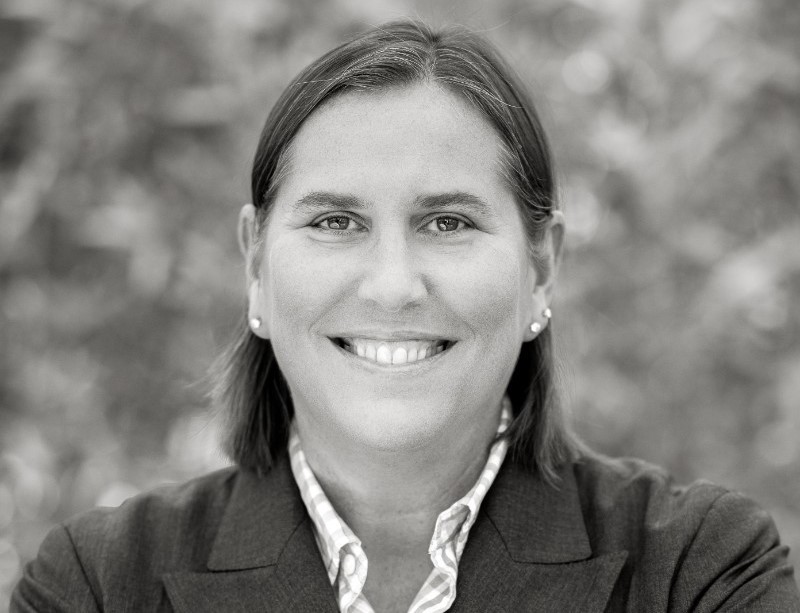Redesign streets for people, not vehicles: Bloomberg expert

Streets in Dhaka can be redesigned to make those safer for citizens, Kelly Larson who directs Bloomberg Philanthropies’ road safety programme said.
Bloomberg Philanthropies has invested $500 million since 2007 to save lives on the world’s roads.
In Bangladesh, they have partnered with Dhaka North City Corporation and Chattogram City Corporation to make roads safer for commuters.
“We’ll implement best practices of road safety interventions,” Kelly told Bangladesh Post on Friday on the sidelines of 7th Asia Pacific Summit of Mayors in Bali, Indonesia.
“And that is typically managing streets, redesigning streets for people not vehicles, improving data and surveillance so that we understand where crashes are occurring, why they are occurring, what are the most effective ways to prevent that, and working with the police to ensure seat belt use and helmet use.”
The theme of the summit was “together we bring health solutions”.
Road traffic crashes are a public health crisis. According to the latest WHO data published in 2020, Road Traffic Accidents Deaths in Bangladesh reached 25,023 or 3.50% of total deaths.
“We know what works to save lives,” Kelly said. “It’s a matter of partnering with cities around the world to ensure that their programmes are based on the evidence and based on the data where crashes are occurring, deaths are occurring and who needs help.”
“When streets are designed for all road users, including pedestrians, bicyclists and motorcyclists, people can move more safely.”
Bangladesh is one of the 15 countries where the Bloomberg initiative began in 2020 and will run to 2025.
“It’s a six-year initiative. We are working with civil society organisations to advocate the government to strengthen road safety policies. We have commitments from the Mayors of Dhaka North and the Chattogram City Corporations,” Kelly said.
“50 percent of the world population live in cities. But most cities have been designed for the movement of cars, not for the movement of people. We are working with the cities in initiatives to rethink and redesign streets.
“In Dhaka we know the congestion is terrible. People can’t move about safely because there are no sidewalk roads, crosswalk. But there are ways you can redesign that can make it safer for citizens. That is the goal.”
Do you think are we in a position to redesign the Dhaka city roads?
“Anything is possible when you have high-level political commitment. We have commitments from Dhaka North city mayor to change the dynamics of the city to save lives,” Kelly said.
“We are committed to building the capacity of the teams on the ground, and how streets can be redesigned for the people. It can be done and it has been done.
“We have examples of cities as part of the initiative that have really made changes such as Ho Chi Minh City where we redesigned more that 300 of their intersections and streets for making those safer for pedestrians. We give the technical capacity.”
They don't say road accidents. They say road crashes.
“Its because accident means you cannot control it. But you can control the crash by following the rules of the road, and something that we are promoting like awareness raising on the importance of following the speed limit, awareness of wearing seat belt and wearing a helmet. In many places drinking and driving is a big issue.
“So, it’s never accident because there are some causes of the crash…someone is not paying attention to, someone is speedy. There are also issues that create crash,” Kelly said.
“Road safety from our perspective is police enforcement of laws, strengthening the laws, creating awareness among the population, professions and prioritising speed management. Speeding is really accountable for 50 percent of all crashes.”
In the Stockholm Declaration adopted after the ‘third Global Ministerial Conference on Road Safety: Achieving Global Goals 2030 Stockholm, 19–20 February 2020’, speed management also got attention.
The declaration called upon the governments for focusing on speed management, including the strengthening of law enforcement to prevent speeding and mandate a maximum road travel speed of 30 km/h in areas where vulnerable road users and vehicles mix in a frequent and planned manner, except where strong evidence exists that higher speeds are safe, noting that efforts to reduce speed in general will have a beneficial impact on air quality and climate change as well as being vital to reduce road traffic deaths and injuries.
The Bloomberg Philanthropies also work on drowning prevention in Bangladesh.



